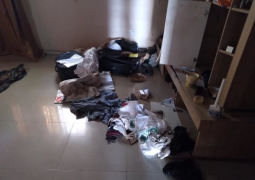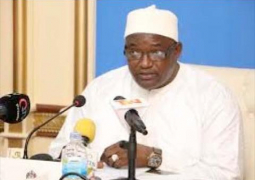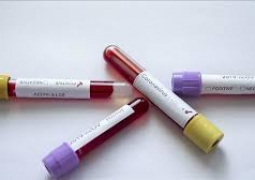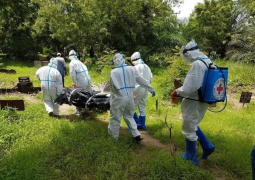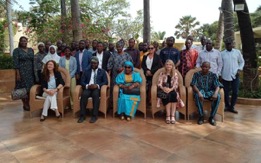
The forum was held at the Bakadaji Hotel in Kololi.
The ECOWAS Center for Renewable Energy and Energy for Efficiency (ECREEE) with support from the Spanish Agency for International Development Cooperation (AECID) and in collaboration with the Ministry of Petroleum and Energy is implementing a regional project entitled “Water and Energy for Increased Food Security and Socio-Economic Development, Promoting Clean Cooking Solutions and Solar Technologies.”
The project covers countries such as The Gambia, Guinea Bissau and Cabo Verde to empower people to participate in the socioeconomic development of local communities through the development of productive activities supported by sustainable energy solutions.
The intended outcome of the project includes prioritised high-impact value chains in selected productive sectors and deployed solutions promoting clean technologies in selected project intervention sites.
The main objectives of the forum were to discuss the selection of value chains in agriculture, fishery, livestock and other livelihood productive sectors and to validate the approach for the Baseline Study that will be conducted in The Gambia.
Speaking at the opening session, Amie Njie-Joof, the Permanent Secretary at the Ministry of Petroleum and Energy, stated that solar energy plays an essential role in all stages of the agri-food value chains - from production to processing and storage.
She said it is also essential in increasing productivity and income, reducing post-harvest losses, strengthening in climate resilience of farmers and agriculture enterprises, improving the living conditions of the population, including women and youth.
She added that solar technologies such as solar water pumping systems, solar dryers and agrivoltaics have emerged as a transformative force in agriculture, providing sustainable solutions that benefit both farmers and the environment.
PS Njie-Joof said the project objectives include increased production by reducing losses in agriculture and fish value chains, and promoting the adaptation of solar photovoltaic technologies for clean energy and water production for agricultural purposes.
The objectives, she added, include promoting the use of clean cooking solutions in schools and health facilities as well as clean and efficient fish smoking.
For his part, Sahr Abraham Grass-Sessay, the Technical Expert for the AECID Regional Projects, said the project would contribute to defining pathways to scale up intervention on energy access and energy productive use, especially in the context of the region where rural electrification in some countries is below 10% and overall is below 50%.
“This trend impacts negatively on the implementation of national and regional programs aimed at fostering socio-economic development, attracting foreign investment, providing basic social services and achieving the Sustainable Development Goal (SDG-7.),” he said.
For her part, Violeta Insa Sandoval, the Spanish Charge D’Affairs in The Gambia, said that through AECID, Spain “supports ECOWAS programs”.
She said further: “ECREEE is one of the ECOWAS Agencies we support. We have been one of the main donors to ECREEE since its inception.”
AECID has supported with a contribution of €7 million, in the setting up and functioning of the Centre, which was aimed at creating a renewable energy market in the region to promote energy efficiency and universal access to sustainable energy in West Africa.


